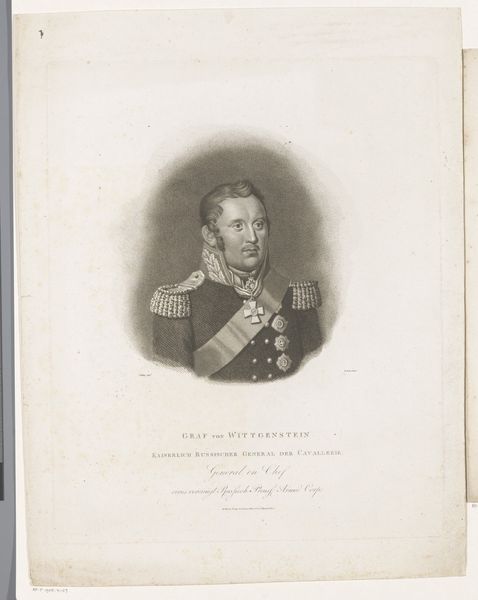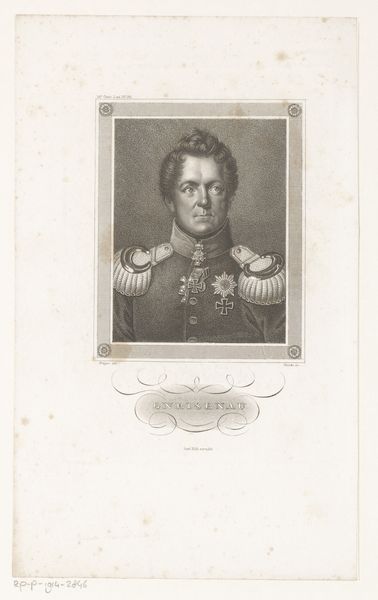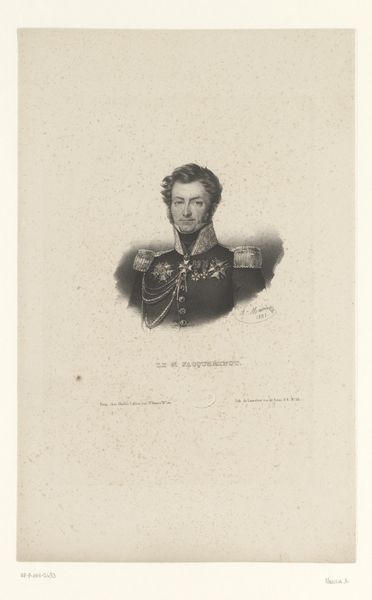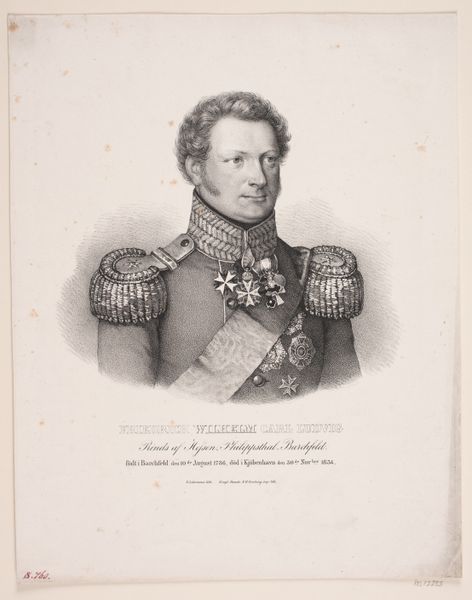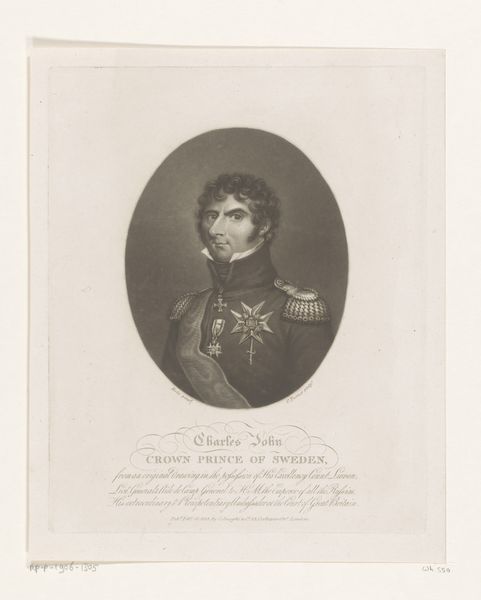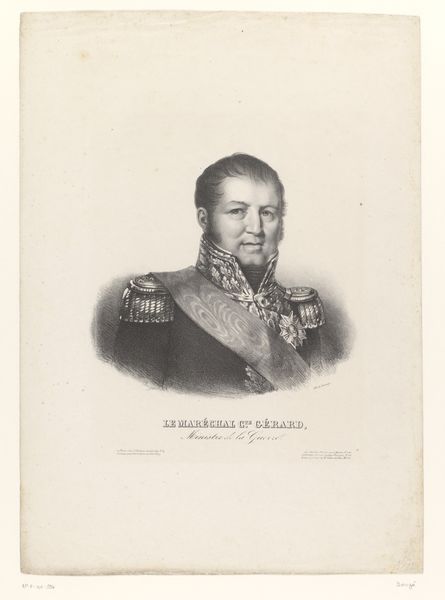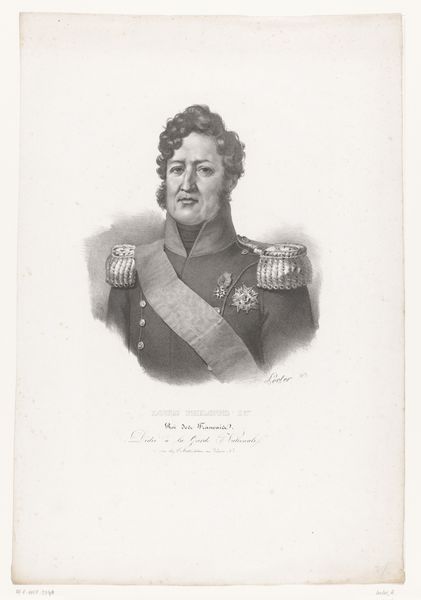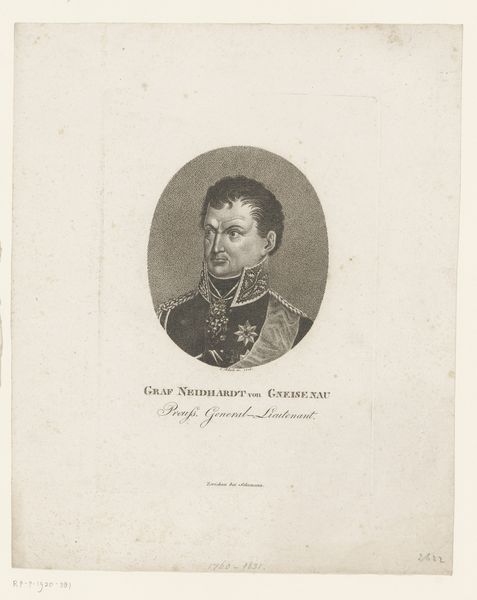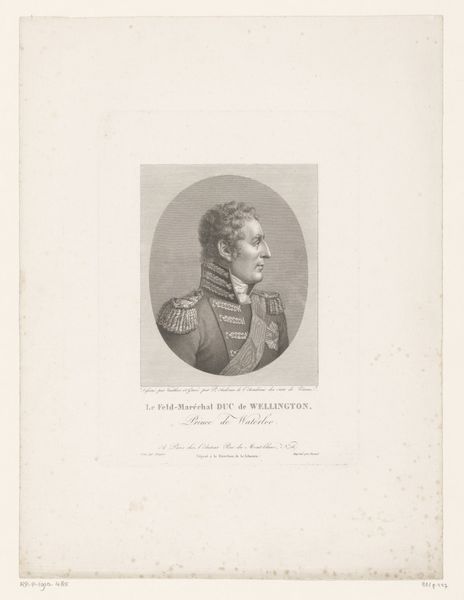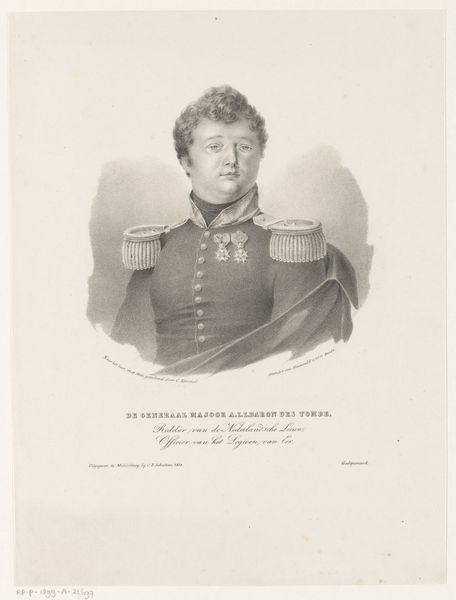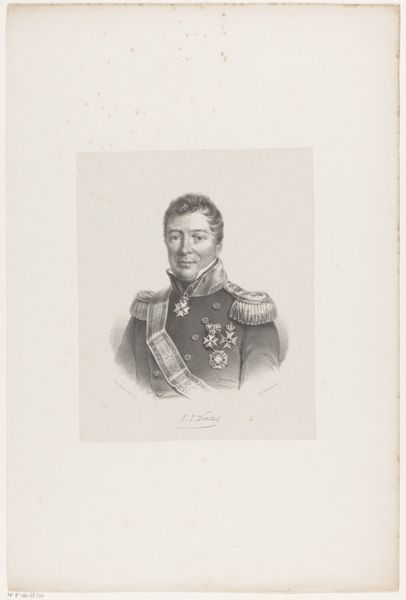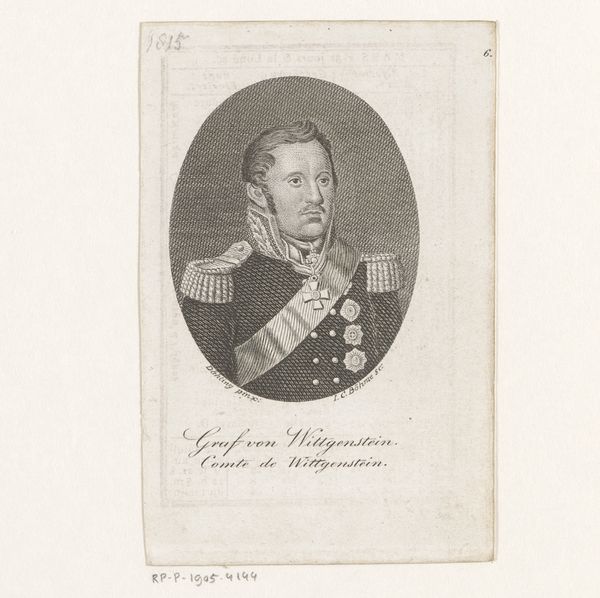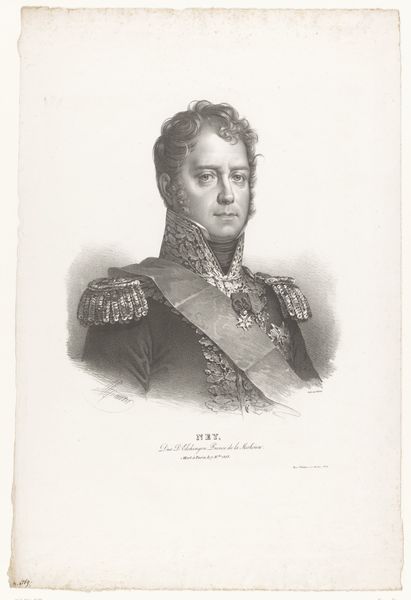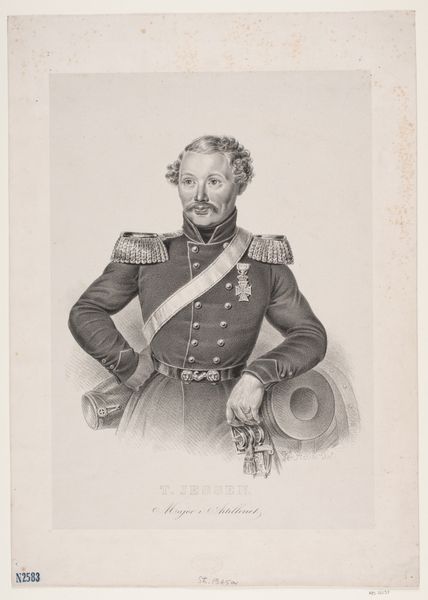
drawing, pencil, graphite
#
portrait
#
pencil drawn
#
drawing
#
neoclassicism
#
pencil sketch
#
old engraving style
#
portrait reference
#
pencil drawing
#
pencil
#
graphite
#
portrait drawing
Dimensions: height 225 mm, width 188 mm
Copyright: Rijks Museum: Open Domain
Curator: This is Eugène Verboeckhoven's "Portrait of Philippe Joseph Piers de Raveschoot" from 1826, held at the Rijksmuseum. Editor: It’s interesting how a pencil drawing can still convey such a sense of formality and status. What stands out to you most about this work? Curator: I'm particularly interested in the materiality of this portrait. Consider the graphite itself – a readily available, relatively inexpensive material used to depict a member of the bourgeoisie. It’s about access, and about who is able to commission and own representations of themselves, versus the labor involved in creating the image. Who held power here – the sitter, or the artist? Editor: I see what you mean. It's more than just a portrait; it’s about the power dynamic of production. Is Verboeckhoven perhaps commenting on class through his choice of medium? Curator: Potentially. Graphite allowed for the creation of multiples through engraving. Were these prints widely distributed? For whom were these images intended, and how did their consumption reinforce social hierarchies? Consider the uniform as well – a constructed identity signified through very specific materials and their arrangement. Editor: So it’s about interrogating the portrait itself, questioning what it signifies in its time, and how the material and method play into that? Curator: Exactly! The artist is using these readily available means of production, to question portraiture as a form itself, and simultaneously producing a traditional piece that supports the systems in place. It challenges our preconceptions of "high art." What have you learned from this drawing? Editor: That’s really fascinating. I see how examining the material helps unlock a deeper understanding of the social and economic context. It definitely pushes beyond just aesthetic appreciation!
Comments
No comments
Be the first to comment and join the conversation on the ultimate creative platform.
